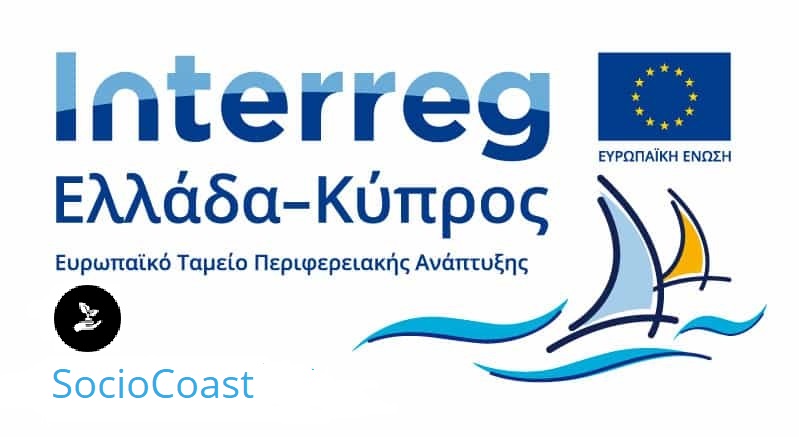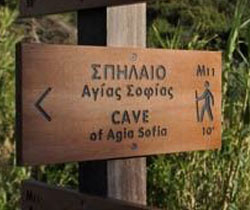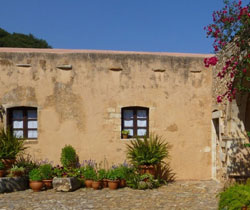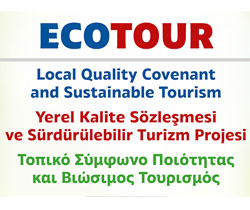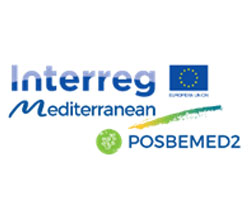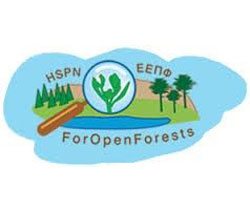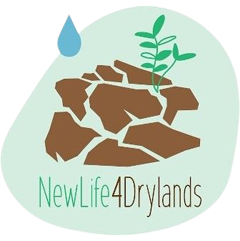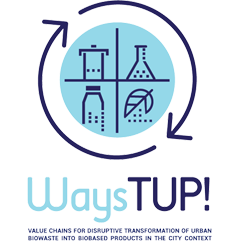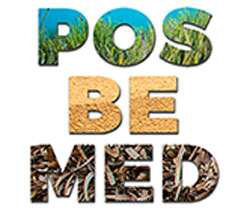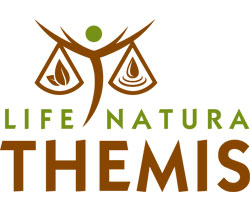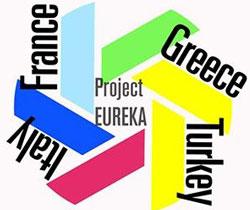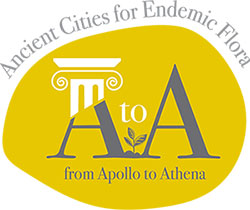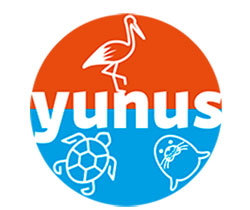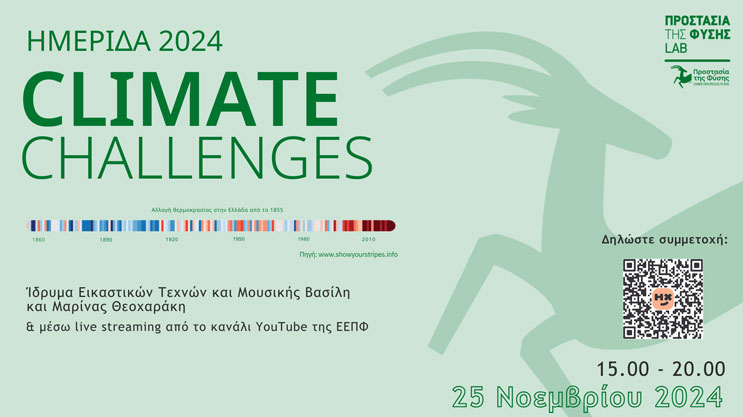SocioCoast
The 2-year SocioCoast project is implemented within the framework of the cooperation Programme INTERREG V-A Greece-Cyprus and funded by the European Regional Development Fund and national sources in Greece and Cyprus. The main goal of the project is to increase attractiveness of the targeted beaches and coastal areas, in both countries, through an improved and more complete information system addressed to the public which will include data related to the natural environment of the areas. Furthermore, the project aims to increase the ability of users to contribute towards the identification of environmental issues related to these areas. More specifically, through applications of Information and Communication Technologies (ICT) and crowdsourcing activities, beach visitors will have the opportunity to be informed and inform other users about local environmental matters. The University of Cyprus is the coordinating beneficiary and the partners are the Hellenic Society for the Protection of Nature, the Institute of Technology and Research, the Cyprus Marine Environment Protection Association, and the Hellenic Center for Marine Research.
The “Kythera Island” Project
"The Trip for the Regeneration of Kythera has started..." was a project about the rehabilitation of the island after the fire that took place in August 2017 in Kythera. The fire caused great natural damages, as significant forest areas were burnt. In order for the island of Kythera to be restored, the Hellenic Society for the Protection of Nature signed a Cooperation Memorandum with the Kythera and Antikythera Domestic Property Committee, and in collaboration with the Institute of Mediterranean Forest Ecosystems (IMDO) of ELGO-Demetra, aimed at implementing a set of actions both for the prevention of forest fires and for the post- fire restoration of the Kythera Island. The project started in 2017 and completed in 2021.
The project activities consisted of: awareness raising events, coastline and underwater cleanups, cleanup of the Mylopotamos ravine, tree planting, collection and processing of cedar seeds (phoenician juniper), as well as the involvement of the school community through student painting competitions for fire prevention. The local society, the student community as well as many other social bodies were actively present in all of the activities.
Under the umbrella of the greater Project, there was a program named "Innovative Action for fire prevention in Kythera", financed by the Green Fund, which played an important role in the project hereby. That program aimed to mobilize and raise the awareness of the residents of Kythera Island about preventing fires, strengthening security and avoiding possible disasters in houses and settlements. The coordination and the scientific oversight of the program was undertaken by Dr. Gabriel Xanthopoulos, as an expert forester on fire issues. The groundbreaking characteristic of the program was that the Kytherian residents participated in a series of pilot actions. The goal of this endeavor was to make the residents of Kythera take action through the recognition of their own problems and risks. In other words, the program was about making the fire prevention become both a “possession” of the residents and a legacy after the program was completed. It is noticeable that in our country there had not been such a program before in any agglomeration or HSPN WEBSITE municipality level. The program started in April 2019 and completed in September 2021.
Botanical Garden
In 2018, the HSPN utilized part of the donations given in Konstantinos Mitsotakis’ memory, in order to create the Botanical Garden of medicinal and aromatic plants of Creta, in collaboration with the Holy Monastery of Chryssopigi in Chania. The Garden is located near Varipetro Kydonias in Chania, in a verdant valley between the church of Aghia Kyriaki and the Metamorphosis Monastery in "Kastellos". The area for the Botanical Garden was kindly granted by the Holy Sisterhood of Chryssopigi in Chania. The purpose is both the protection and promotion of the Cretan medicinal and aromatic plants, as well as the functioning of the Botanical Garden as an educational space for visitors and school students.
In addition, the Botanical Garden will be able to be the starting point of the hiking route, which, starting from the valley of the monasteries, will be crossing the White Mountains.
EcoTour
Project EcoTour (2019-2020): A 12-month project that was implemented as part of the "Town Twining Between Turkish and European Municipalities - Grant Scheme (TTGS)". The action involved cooperation between the Municipality of Erdemli in Turkey and the Municipality of Parga in Greece, to promote an innovative model of sustainable tourism that protects and encourages cultural identity, environmental protection and conserves natural resources. The project included production of a short movie for the promotion of the two municipalities, seminars and workshops for the exchange of experience and know-how.
POSBEMED2
The project "POSBEMED2 – Governance and management of Posidonia beach-dune systems across the Mediterranean" is conducted under the programme InterregMED, has a duration of 32 months, started in November 2019 and it is co-financed by the European Regional Development Fund. It is the continuation of the previous project "Posbemed", in which the Hellenic Society for the Protection of Nature was an associated partner. The POSBEMED2 project is implemented in Greece, France, Italy, Spain, Croatia and Cyprus and the lead partner is the Autonomous Region of Sardinia, with the IUCN Med being the technical coordinator. The POSBEMED2 project aims at the sustainable management of Posidonia landscape and beaches with Posidonia banquettes in Protected Areas and Natura 2000 habitat types across the Mediterranean.
ForOpenForests
The Project LIFE11 NAT/GR/001014 ”ForOpenForests” was co-financed by the European Union Life Financial Instrument from September 2012 to November 2019. The HSPN was the coordinating beneficiary of this 5-year LIFE+ project for the protection of priority habitats and species in two Natura 2000 sites on Mts Oiti and Kallidromo of Central Greece. Goals include conservation and restoration of alpine meadows and Mediterranean temporary ponds, protection of endemic plants and priority bird species, habitat management for bears, support of local producers and promotion of ecotourism. The other partners were: University of Athens, Institute for Mediterranean Forest Ecosystems, Region of Sterea Ellada, and the NGO Arcturos.
For more information visit the project website
NewLife4Drylands
The Project LIFE20 PRE/IT/000007 ”NewLIFE4Drylands” is co-financed by the European Union Life Financial Instrument. The HSPN is a partner in this 3- year LIFE project, aiming to monitor the application, scalability and replication of Nature-Based Solutions (NBS) for restoration of degraded and desertified drylands. The project will provide, by using Remote Sensing techniques, a framework and a protocol for: identifying dryland characteristics; identifying sustainable solutions that could be successfully implemented in degraded drylands, e.g. to improve vegetation cover and productivity in areas vulnerable to ongoing desertification; mid- and long-term monitoring of interventions in desertified lands, to better evaluate restoration effectiveness and improve sustainable soil management. The NBS protocol will be based on high resolution Earth Observation data and Remote Sensing methodologies, compensating for the lack of long-term, reliable and homogeneous local information, and providing a clear, specific and cost free assessment of restoration processes, useful for further decision-making.
WaysTUP!
The project "WaysTUP!" has a duration of 42 months and is funded by the Horizon 2020 Programme. The project is about turning urban biowaste into biobased products. Being a component of circular economy, the focus is on turning urban biowaste into a recourse to be used again. Specifically, the project is designed to showcase a portfolio of new processes that convert urban biowaste from different feedstocks into biobases products; for example fish and meat waste, spent coffee grounds, household seperated biowaste, used cooking oils, etc. These processes will result in the production of food and feed additives, flavours, insect protein, coffee oil, bioethanos, biosolvents, bioplastics and more. The Hellenic Society for the Protection of Nature is one of the 27 partners, among 10 countries that are member states of the European Union.
For more information visit the project website
Posbemed
Project INTERREG MED ”POSBEMED” (2016-2018): The HSPN participated as an associate in this 15-month project, which studied the conflicts and opportunities of Mediterranean coastal protected areas and Natura 2000 habitats where Poseidonia seagrass meadows are present, and interaction with dunes and beaches occurs. Its main goal was to provide a Mediterranean strategy and governance model for enhancing the management of Poseidonia banquettes in these areas and beyond. The project was led by EID-MED (France); partners included IUCN (Spain), IMC Foundation and ECO-logica (Italy), and the Hellenic Centre for Marine Research (Greece).
For more information visit the project website
ICON
A 15-month project that was implemented as part of the “Civil Society Dialogue between EU and Turkey - IV Environment Grant Scheme (CSD-IV/ENV)”. Its goal was to inform civil society in Turkey, including relevant local and regional authorities, about flora conservation, focusing on terrestrial orchids. Its actions included the creation of an interactive digital platform and database about all species of wild orchids (approximately 400) shared between Greece and Turkey, creation of educational material, a documentary, an international conference, etc. Other partners were the German NGO Sails-for-Science (coordinating beneficiary), and the Turkish NGO Association for the Conservation of Antalya Orchids and Biodiversity.
LIFE Natura Themis
The Project LIFE14 GIE/GR/000024 ”LIFE Natura Themis” was co-financed by the European Union Life Financial Instrument. The HSPN was a partner in this 5-year LIFE+ project, aiming to establish that environmental crime and damage to biodiversity are specific criminal acts, liable to prosecution and punishment, especially in Natura 2000 sites, according to the Environmental Liability Directive. This was achieved by providing information on relevant EU acquis to the legal and judicial authorities, regional and local administration, as well as the general public and stakeholders in Crete. Other partners were the University of Crete (coordinating beneficiary), the Chania and Herakleion Bars and the Ministry for the Environment and Energy.
For more information visit the project website
EUREKA
The project "Ecological Understanding of Risks of the Environment through a deeper Knowledge and Awareness - EUREKA", has a duration of 24 months, is funded by the Programme Erasmus+ and is implemented in Greece, France, Italy and Turkey. In that project both schools of secondary education and environmental NGOs are involved, as a cooperation pattern. The lead partner in the project is the french instituion Alpes de Lumière. Through promoting innovative educational methods, the aim of the project is to weaken and combat the phonomenon of early school leaving, the promotion of a more effective professionalising career guidance inside the school, cutting youth unemployment and raising of awareness of students about environmental issues, as well as climate change.
For more information visit the project website
A2A
HSPN participated as partner in the implementation of the 15-month project "Ancient Cities for Endemic Flora, From Apollo to Athena – A2A", in the framework of the Programme Supporting Civil Society Dialogue Between EU and Turkey. Archaeological sites host important, often endemic and/or rare, species of local flora, which usually survive there because of the relative protection offered in relation to the surrounding, heavily developed areas. Such sites include Side in Antalya (Turkey), and the Acropolis Hill of Athens (Greece), each hosting local endemic and critically endangered plant species. The project aimed to inform archaeologists, botanists, naturalists and tourist guides about rare and endemic flora species in archaeological sites. The coordinating beneficiary is the "Association for the Conservation of Antalya Orchids and Biodiversity" (CAOB).
The project also created the "Virtual Garden" application, which is intended for mobile phones and other smart devices. The aim is to inform visitors to the archaeological sites, guides and staff about the local flora, through the provision of information and images.
By following the link here, you can download the app for Android software devices.
By following the link here, you can download the application for IOS software devices.
YUNUS
A 24-month project co-funded by the European Union and the Republic of Turkey under the scope of “Civil Society Dialogue between EU and Turkey”. The overall objective of the programme was to bring together civil society organisations from Turkey and the EU around common topics, to exchange knowledge and experience, and to build a sustained conversation between the organisations. Specific objectives of the project included the establishment of a sustainable network for the cooperation of Turkish and Greek stakeholders in the field of Education, as well as the promotion of the EU acquis to Turkish society. The project included creation of common Environmental Education Programs focusing on 3 iconic species present in both countries: the Monk Seal (Monachus monachus); the Loggerhead Turtle (Caretta caretta); and the White Stork (Ciconia ciconia). In addition, an educations web site was created, along with three short movies that provide necessary information and knowledge to teachers in order to implement environmental education activities in their classes.



